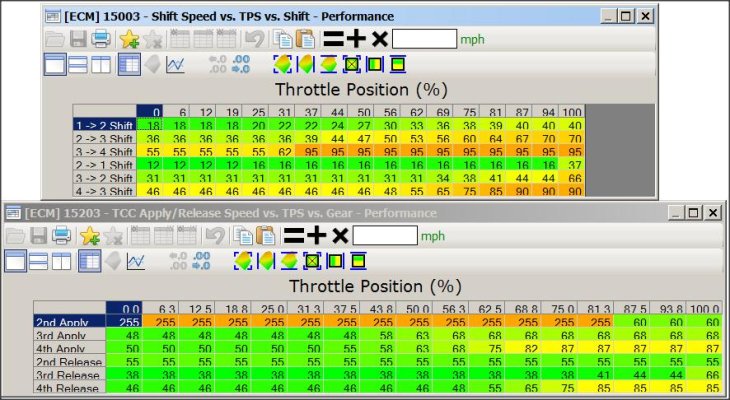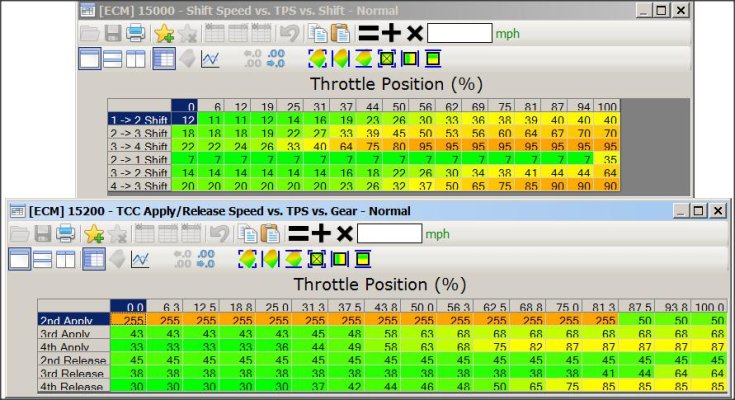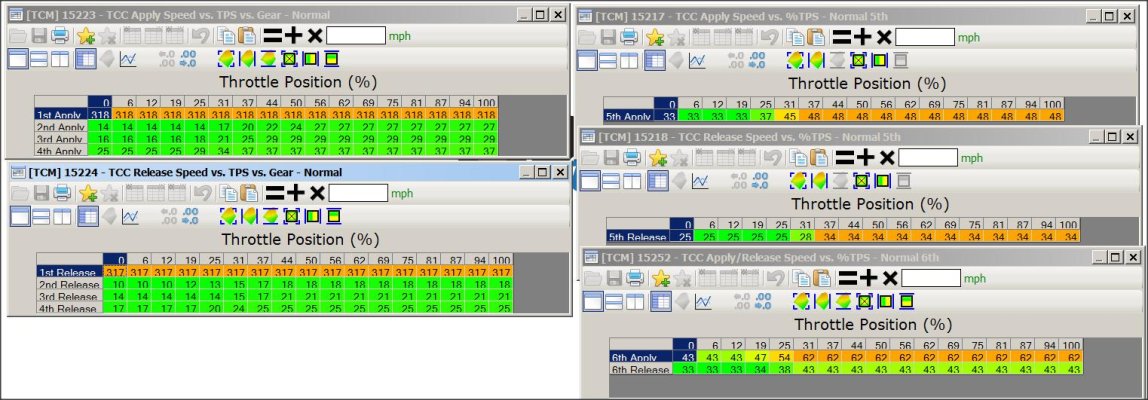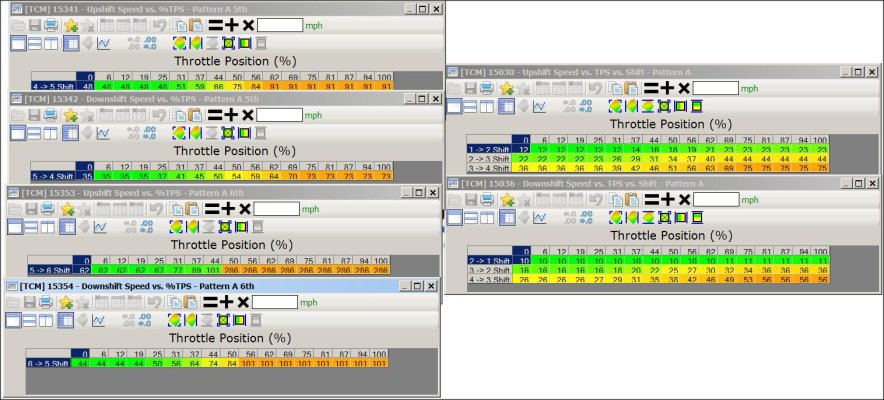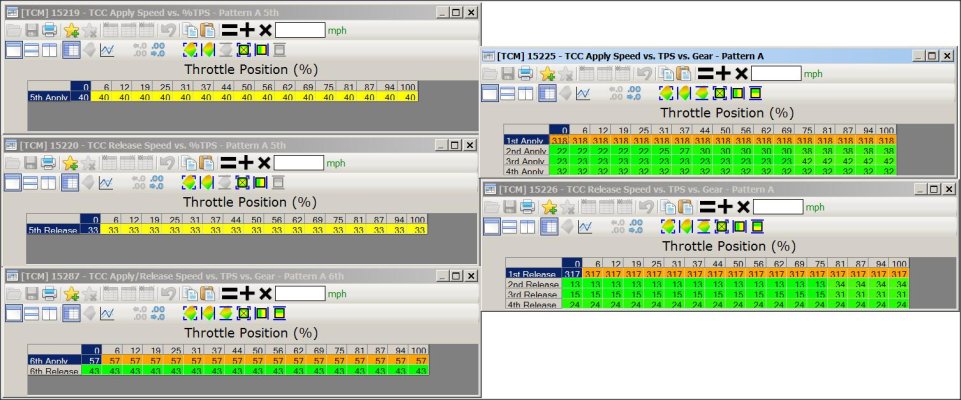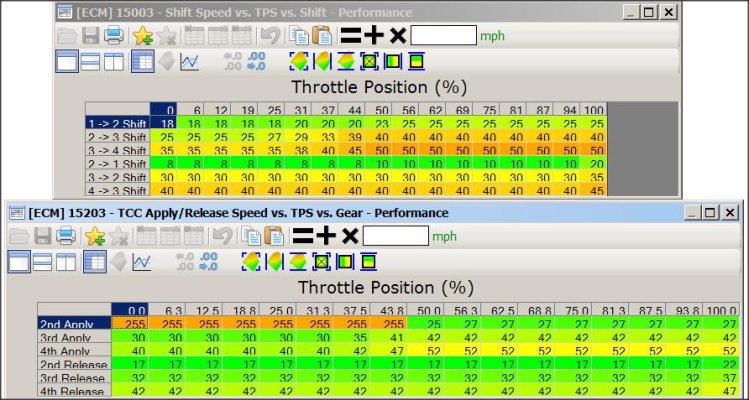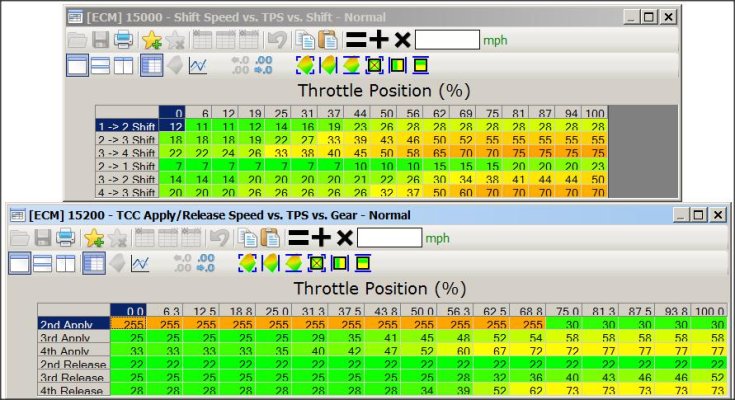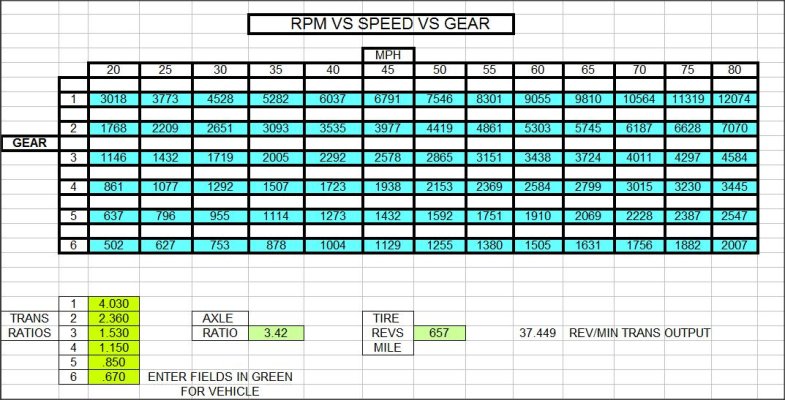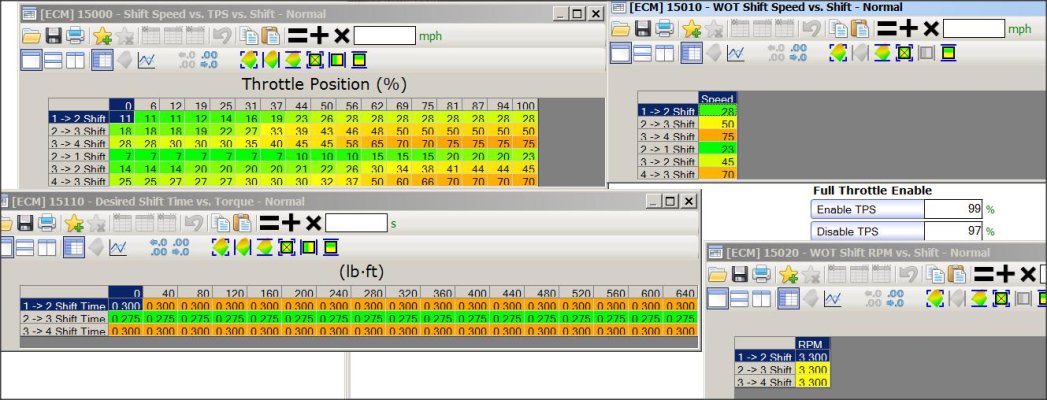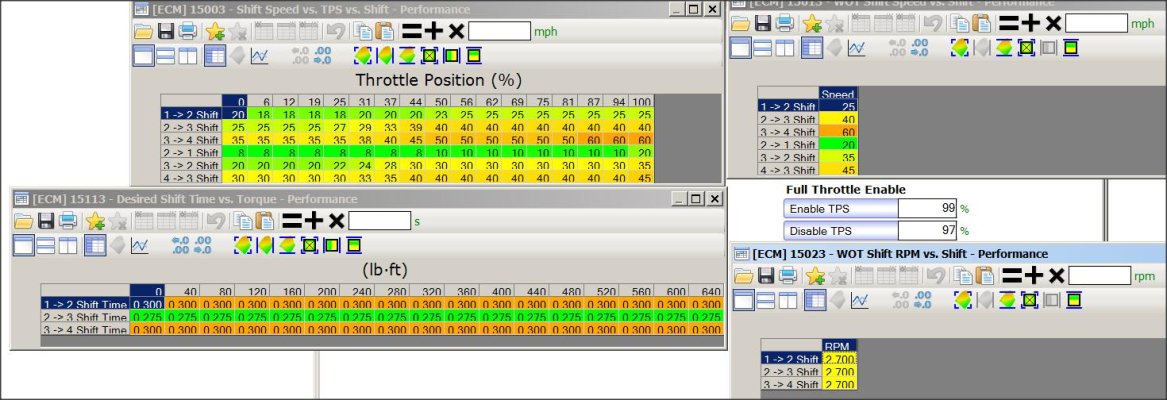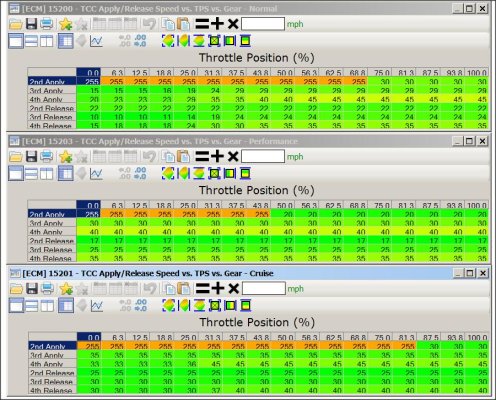This time of year gives some time to go a bit deeper into some of the oddities of our vans, and this is another step into trying to determine why the 4 speed Chevies get hot, primarily transmissions, on long climbs. Lots of things make incremental improvements, like big coolers, two core radiator, add on electric fans, etc, but none of them really seem to address the root causes, I think.
I have been digging everywhere I could to find out what is different between the later model 6 speed and the four speed models like we have. Nothing stood out beyond the transmission change. We have found with our van that it tended not to get hot climbing mountains in high gear, but would get very hot climbing in lower gears in other places. Since the major part of the heat in a transmission comes from the torque converter when it is unlocked, I started looking for specs, or a way to test, when the torque converter was locked.
I did find a "tuner" which also did the trans settings as well as engine settings, tire size, drivetrain settings, etc. and finally decided just to get it it see what was up. The tuner piggybacks on the factory program, so you can change just what you want and leave the rest as is, so easier than a start from scratch programmer.
The first thing I did was read our existing program.
Here is the data table for the "normal" mode, which is basically the one you get most of the time, unless cruise or tow/haul are on.

This is the same thing when in tow haul mode

They basically show what the shiftpoints are in mph based on TPS reading and the gear in use and similar for the converter locking and unlocking.
What these table show, it appears is that the 4 speed transmission rarely has the converter locked under the conditions we see when climbing in other than 4th gear. For instance, we were able to climb to 12K feet in Rocky Mountain Nat Park in 3rd or 2nd gear within the 35mph speed limit, but there is no time that the converter would be locked. No wonder we got hot, even with the addon cooling stuff.
Compare those table above to what they have programmed to cool the transmission if it get too hot.

The converter is basically locked all the time, except in low gear.
To me, this made it pretty clear it was time to try to figure out what kind of changes could be made to the tables to keep the converter locked more of the time to prevent excessive heating.
I did go to a local high performance transmission shop to ask if the trans could handle locking more of the time, and they said no problem.
Next post will start to look at what I think can be done successfully to reduce heat, while keeping decent driveability.
I have been digging everywhere I could to find out what is different between the later model 6 speed and the four speed models like we have. Nothing stood out beyond the transmission change. We have found with our van that it tended not to get hot climbing mountains in high gear, but would get very hot climbing in lower gears in other places. Since the major part of the heat in a transmission comes from the torque converter when it is unlocked, I started looking for specs, or a way to test, when the torque converter was locked.
I did find a "tuner" which also did the trans settings as well as engine settings, tire size, drivetrain settings, etc. and finally decided just to get it it see what was up. The tuner piggybacks on the factory program, so you can change just what you want and leave the rest as is, so easier than a start from scratch programmer.
The first thing I did was read our existing program.
Here is the data table for the "normal" mode, which is basically the one you get most of the time, unless cruise or tow/haul are on.
This is the same thing when in tow haul mode
They basically show what the shiftpoints are in mph based on TPS reading and the gear in use and similar for the converter locking and unlocking.
What these table show, it appears is that the 4 speed transmission rarely has the converter locked under the conditions we see when climbing in other than 4th gear. For instance, we were able to climb to 12K feet in Rocky Mountain Nat Park in 3rd or 2nd gear within the 35mph speed limit, but there is no time that the converter would be locked. No wonder we got hot, even with the addon cooling stuff.
Compare those table above to what they have programmed to cool the transmission if it get too hot.
The converter is basically locked all the time, except in low gear.
To me, this made it pretty clear it was time to try to figure out what kind of changes could be made to the tables to keep the converter locked more of the time to prevent excessive heating.
I did go to a local high performance transmission shop to ask if the trans could handle locking more of the time, and they said no problem.
Next post will start to look at what I think can be done successfully to reduce heat, while keeping decent driveability.

